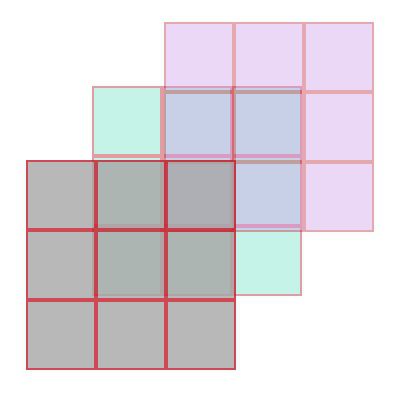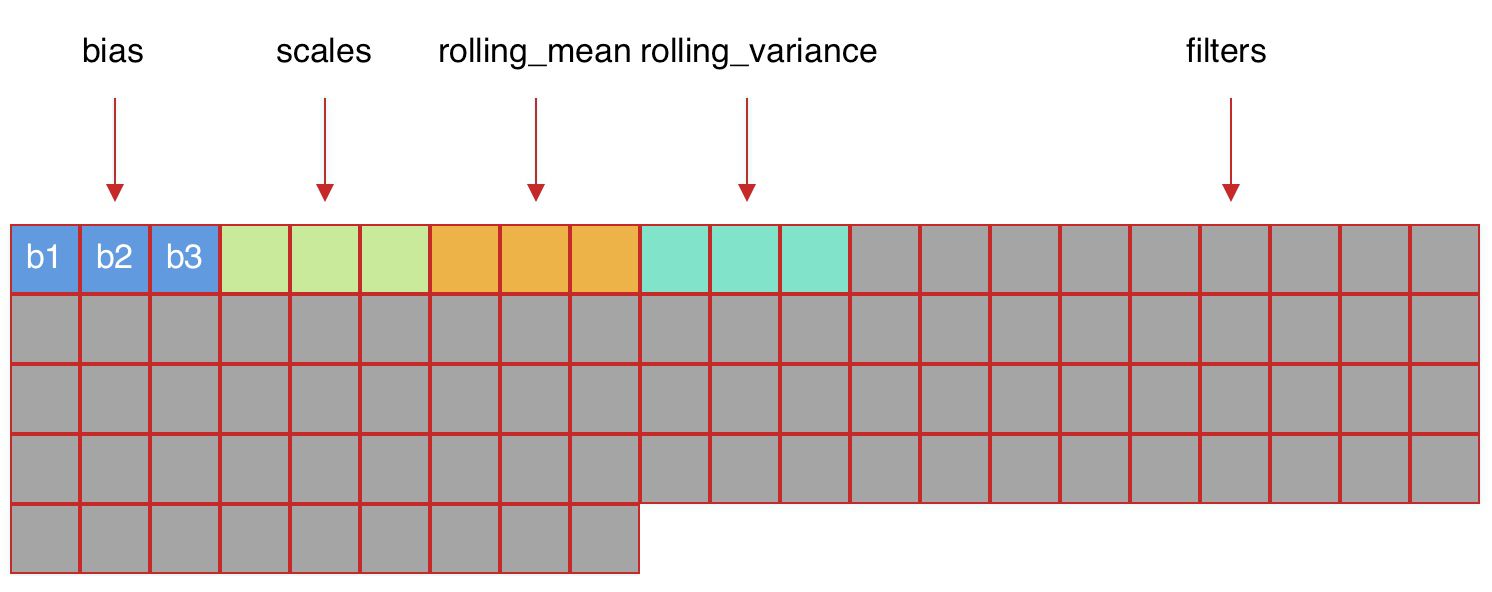Load Weights
First, see this C library function:1
size_t fread ( void * ptr, size_t size, size_t count, FILE * stream );
Parameters
ptr − Pointer to a block of memory with a size of at least (sizecount) bytes, converted to a void.
size − This is the size in bytes of each element to be read.
count − This is the number of elements, each one with a size of size bytes.
stream − This is the pointer to a FILE object that specifies an input stream.
Then, in the load_weights_upto function in parser.c, it begins to load weights for layers from xxx.weights.1
2
3
4
5
6
7
8
9
10
11void load_weights_upto(network *net, char *filename, int start, int cutoff) {
...
// Begin to load weights for layers
for(i = start; i < net->n && i < cutoff; ++i){
layer l = net->layers[i];
if (l.dontload) continue;
if(l.type == CONVOLUTIONAL || l.type == DECONVOLUTIONAL){
load_convolutional_weights(l, fp);
}
...
}
Convolutional Layer
In load_convolutional_weights function, it loads values of biases for filters. One bias for one filter.
1 | fread(l.biases, sizeof(float), l.n, fp); |
l.n is the number of filter in this layer.
Assign the values to scales, rolling_mean and rooling_variance1
2
3
4if (l.batch_normalize && (!l.dontloadscales)){
fread(l.scales, sizeof(float), l.n, fp);
fread(l.rolling_mean, sizeof(float), l.n, fp);
fread(l.rolling_variance, sizeof(float), l.n, fp);
And load weights for filters in this layer. The default value of l.groups is 1.1
2int num = l.c/l.groups*l.n*l.size*l.size;
fread(l.weights, sizeof(float), num, fp);
l.c is input channel. The number of input channel equal to the number of channel of a filter in this layer. Thus, l.size is the size of a filter.
For a 3x3x3 filter (size=3, channel=3), it has 3x3x3=27 parameters as follow

If a convolutional layer has 3 such filters, it will have 3 values for bias, 3x3x3x3 .Its weight layout in memory is like this:

Write Weights
save_weights_upto and save_convolutional_weightsfunctions show how to save weights into a xxx.weights file. It’s just a reverse process.
1 | void save_convolutional_weights(layer l, FILE *fp) |
1 | size_t fwrite ( const void * ptr, size_t size, size_t count, FILE * stream ); |
Parameters
- ptr
Pointer to the array of elements to be written, converted to a const void*. - size
Size in bytes of each element to be written.
size_t is an unsigned integral type. - count
Number of elements, each one with a size of size bytes.
size_t is an unsigned integral type. - stream
Pointer to a FILE object that specifies an output stream.
scan qr code and share this article
